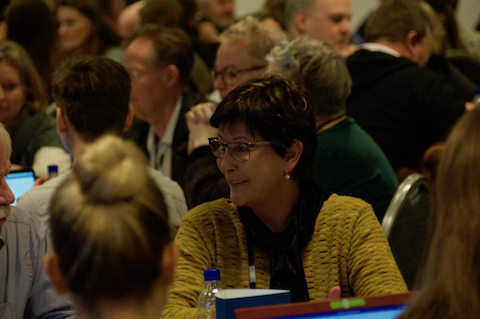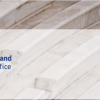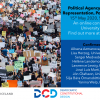
Are changes needed?
Iceland’s democratic system is based on proportional representation. As in other Nordic countries, political parties are the principal political agents, and candidates in municipal and parliamentary elections most often run by securing a seat on a party list.
Political parties and movements can run in six electoral constituencies, each represented by 8 to 13 MPs. While candidates do not have to run in all electoral constituencies, residents can only vote parties running in their constituency. Those elected in a specific constituency then become the MPs of that region in Althingi. While MPs are representatives of their particular region in Althingi, they are also expected to work for the common good, beyond regional interests.
In the current system, the electoral constituencies with fewer voters have a proportionally greater number of representatives in Althingi than the ones with the most voters . In practice this means that votes from the rural constituencies have a greater weight. This is referred to as an imbalance of votes, and is a source of continuous debate. Demands for equal voting power have been loud over the years, and the Constitution has been amended a few times over the years to decrease this imbalance. Proposals to make Iceland a single electoral constituency – thereby giving votes equal weight – have also been recurrent. This however has raised questions about how less populated regions can make sure that their voice is present in the Parliament.
Since Iceland’s political life is dominated by political parties, the opportunity to select candidates individually is for the most part limited to participation in party primaries, where candidates compete for the top seats on party lists. In elections, voters choose between open candidate lists. They do not have an opportunity to select candidates across party lists, or the ability to change the order of candidates on a list. Voters can theoretically “strike out” a candidate on the party list they elect, but the proportion necessary to actually remove a candidate from his/her assigned seat is too high for that to be realistic, except in rare cases. Some have called for voters having more influence on the order of candidates, as well for the possibility of choosing candidates across lists.
In the deliberative meeting, five policy proposals were suggested to participants for discussion concerning the electoral constituencies, vote weight and personalized voting:
1. Elections for Parliament and local bodies should continue to be based on party lists but still allow for a more personalized vote
2. Elections for parliament and local bodies should be entirely personalized
3. The country should be made a single electoral constituency
4. Electoral constituencies should remain unchanged
5. Electoral constituencies should be more numerous than they are now
Topic 1: Electoral constituencies and vote weight – what is fair?
The information material sent to participants before the deliberative meeting presented possible arguments for and against the above options.
1. Electoral constituencies should remain unchanged
The main argument presented in favor of the number of electoral constituencies remaining unchanged was that vitally, the current system serves to ensure that all regions are represented in Althingi. The main argument against was that democracy is based on political equality, so citizens should influence the selection of representatives to an equal extent. According to this argument, the current system sustains unequal vote weight and therefore is not fully democratic. Before the discussion, 26% of participants agreed that the system should remain unchanged. After the discussion, the proportion was 36%. After the discussion, the majority of participants (73%) also agreed that it was important for the country’s division into electoral constituencies to ensure that all parts of the country are represented in the Parliament – a change from a slightly smaller majority (66%).
During the discussion, it became apparent that many participants felt the current system to be complicated, not sufficiently transparent and even outdated. However, it was also clear that participants did not want change for change’s sake: the most important thing was to implement changes with the goal of promoting a fairer system, rather than make the system unfair in a different way. Participants sought a system based on justice and transparency, emphasizing the prevention of “constituency prodding” (in Icelandic. kjördæmapot) and less partisanship.
While the unfairness of voter discrimination was to many participants something that should be urgently corrected, the discussion also showed growing sympathy towards safeguarding the interests of rural areas. For example, one participant maintained that changing the current system to abolish the imbalance of votes would break the connection between the capital and rural areas, a sentiment shared by quite a few participants.
2. Electoral constituencies should be more numerous than they are now
An argument presented in favor of increasing the number of constituencies was that in the current system, some constituencies are too big, which make it so that other are left out. Currently, regions are incorporated into large electoral districts without necessarily having enough in common to be represented as a united entity. An argument presented against was that as ensuring full regional coverage in Althingi involves unavoidable discrimination between citizens in different parts of the country, this would be intensified if the number of constituencies was increased. By and large however, support of increasing the number of constituencies remained low: 18% before the meeting, and not significantly different after the discussion.
While most participants were against making constituencies more numerous, some thought that doing so would contribute to MPs paying more attention to the interests of smaller regions. It was also pointed out that some electoral districts cover large areas with different populations and differing needs, which can make it difficult for MPs to work properly for their benefit. One participant felt that while MPs from Reykjavík regard themselves as representatives of the entire nation, MPs from outside the capital tend to see themselves as representatives of certain regions. Others argued that in this day and age, e.g. with easier transport and communication, the need for many electoral constituencies is not as great it may have been before.
3. The country should be made a single electoral constituency
The main argument presented in favor of a single constituency was that equal vote weight is the most important change to be made to the system. Making the country one electoral district would guarantee this. The main argument against pointed out that statistical equality should not be conflated with actual equality. A single constituency could make it harder for smaller areas to have a voice in policymaking. Before the discussions, 40% of participants believed that the country should be made a single constituency. After the meeting this percentage rose to 45%. The proportion of participants who agreed that making vote weight equal was the most important change to be made changed from 60% to 68%.
Common arguments made by participants in favor of making the country a single electoral constituency included that it might contribute to minimizing self-interest by encouraging MPs to work for the benefit of the entire country, rather than for specific areas. The participants who wanted Iceland to be one electoral constituency still spoke about the importance of safeguarding the interests of rural areas, emphasizing that their voices needed to be heard. Many feared that the change could contribute to a large majority of MPs coming from the capital area, and that many regions would not have any representation in Althingi. According to one participant, many Icelanders have barely been outside the capital, and have no connection to rural areas. Therefore, the interests of these areas would need to be secured in the electoral system. One participant maintained that “all administration is based here in Reykjavík, absorbing both people and power.” Commonly, participants who felt that it was important to aim for equal vote weight also acknowledged that the imbalance of votes was a necessary evil in order to distribute power, and to ensure equal representation.
To conclude, the discussion generally revolved around balancing vote weight and preventing discrimination on one hand, and the importance of safeguarding the interests of rural areas on the other hand. Most participants agreed on the importance of both factors. Many had a difficult time coming to a clear conclusion and considered there to be good arguments for and against changing the current system. Most importantly, the discussion was not a heated confrontation between the interests of rural areas and the capital. Instead, participants wanted to find an arrangement that would ensure fairness and equal representation of the capital and the rural areas in Althingi.
Topic 2: Party lists or personalized vote?
In the information material, potential arguments for elections allowing for a more personalized vote while still continuing to be based on party lists included that voters should be able to have more impact on the selection of representatives than the system currently permits. Additionally, emphasizing the responsibilities of elected officials toward their voters could strengthen Iceland’s representative democracy. Potential arguments against this included that Iceland’s political system is based on party politics. Allowing voters to “stir up” party lists would upset this system and undermine the work of parties, unless strict limitations were in place. Parties need to increase transparency, but personalized voting does not contribute to strengthening representative democracy.
Potential arguments presented for parliamentary and municipal elections being completely personalized included that as parties can hinder direct connection between elected officials and voters, reducing the role of parties might strengthen these relations. In the current system, it is often more important for elected officials to ensure their position within their respective parties rather than to serve the public. Personalized voting could enable elected officials to follow their own conviction whenever they deviate from the official party line. Arguments against included that debate conducted on the platform of political parties is the basis of Iceland’s democracy. Additionally, an important aspect of pluralistic democracy is that the spotlight remains on issues, not on specific persons. There is also a danger of elections becoming popularity contests, where celebrities have an advantage over “ordinary people”.
Before the discussion, a majority of participants (65%) was interested in increasing personalized voting, while still keeping the system party based. After the discussion, the proportion increased to 80%. Furthermore, the proportion of participants who believed that elections should be entirely based on personalized voting dropped from 55% to 43%. After the discussions, 75% of participants agreed that it was important for voters to have more influence on the selection of officials than the current system permits, e.g. by being able to rank party candidates or by being allowed to vote across party lines.
During the discussion, participants were generally interested in the idea of personalized voting. Many wanted to be able to influence candidate lists to a greater degree, and quite a few wanted to be able to vote for candidates across parties. Some believed that personalized voting could increase public trust toward Althingi and MP’s personal accountability. MPs wouldn’t be able to “hide behind their parties” and would be more likely to keep election promises and work for the public, without blindly following the party line.
Some participants considered personalized voting to better contribute to cooperation and compromises in Althingi than the current system, pointing out that politicians are prone to rejecting cooperation with others if they are not on the same “team”. Some were very critical of the party system and considered it to contribute to a herd mentality. Criticism of the party system was often based on the perception of corruption and a lack of accountability in Icelandic politics.
Quite a few participants were distrustful of personalized voting. While parties create a framework that makes it easier to see what candidates stand for, personalized voting would require voters to research the policies of many individuals. Some also asserted that alliances between parties are more transparent than alliances between individuals. Others worried that a personalized voting system would contribute to elections becoming a popularity contest. One view was that because well off and well-known candidates would likely be more successful in elections, Althingi would become even more homogenous. Others pointed out that personal charisma didn’t necessary equal a good politician. Some also considered Iceland to be small for personalized voting.
Some participants wondered if a mixed system was possible. For example, if half of MPs could be elected from electoral constituencies and half from the country as a whole. Additionally, some form of personalized voting could take place parallel to the party system. Many participants wanted to know more about the options and research the issue further, feeling there to be pros and cons to both personalized and party-based voting. In general, the discussions about electoral constituencies and voting systems were defined by participants debating what would constitute true fairness and equality.





















